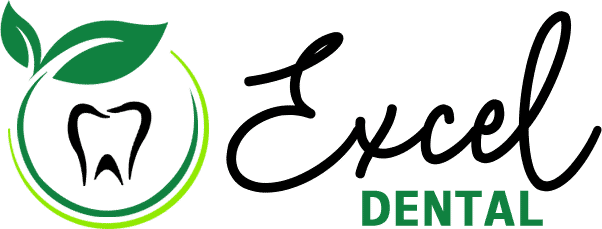Have you ever experienced a dental emergency? If yes, then you know how painful and uncomfortable it can be. Dental emergencies are not only excruciating but also unpredictable. They can happen when you least expect them, leaving you in agony and feeling helpless. That’s why quick action is vital when facing dental emergencies! In this blog post, we’ll discuss the importance of acting swiftly when dealing with a dental emergency and what steps to take to ensure your oral health is not compromised. So buckle up and let’s dive into why time matters during dental emergencies!
What is a Dental Emergency?
A dental emergency is any type of oral health issue that requires immediate treatment in order to avoid serious consequences. Common dental emergencies include toothaches, cracked or chipped teeth, abscesses, and knocked-out teeth.
If you are experiencing a dental emergency, it is important to seek treatment as soon as possible. Waiting too long can result in further damage to your teeth or gums, and can even lead to infection.
At the first sign of a dental emergency, contact your dentist or an emergency dental clinic for assistance. If you are unable to reach a dentist right away, there are a few things you can do to ease your symptoms and prevent further damage:
- Rinse your mouth with warm water to clean the area around the affected tooth.
- Apply a cold compress to the outside of your cheek to reduce swelling.
- Take over-the-counter pain medication if you are in pain.
- If you have knocked out a tooth, try to put it back in place if possible. Otherwise, store the tooth in milk or saline solution until you can get to a dentist.
Types of Dental Emergencies
There are many different types of dental emergencies, and each one requires quick action in order to prevent further damage. Here are some of the most common types of dental emergencies:
- Broken tooth: If you have a broken tooth, it is important to seek dental care immediately. A broken tooth can lead to infection and other serious problems.
- Knocked-out tooth: If your tooth has been knocked out, try to find the tooth and bring it with you to the dentist. If you cannot find the tooth, don’t worry – a dentist can usually replant a lost tooth if you see them within an hour or two of the injury.
- Severe toothache: A severe toothache can be a sign of an infection or other serious problem. It is important to see a dentist as soon as possible so that they can determine the cause of the pain and provide appropriate treatment.
- Cracked tooth: Like a broken tooth, a cracked tooth can also lead to infection or other serious problems. It is important to see a dentist right away so that they can determine the extent of the damage and provide appropriate treatment.
The Benefits of Taking Quick Action
When you are faced with a dental emergency, it is important to take quick action. This will help to ensure that your teeth are protected and that you receive the necessary treatment. By taking quick action, you can also help to avoid further damage to your teeth or oral health.
There are many benefits to taking quick action when facing a dental emergency. Quick action can help to protect your teeth from further damage. It can also help you to receive the necessary treatment quickly so that you can avoid any complications. Quick action can also help to reduce the amount of pain that you feel.
Here are some steps to take when facing a dental emergency:
- Contact your dentist right away- If you have an existing relationship with a dentist, they will be able to advise you on the best course of action and provide you with prompt treatment. If you do not have a dentist, try contacting a local dental clinic or emergency room.
- Rinse your mouth with warm water- This will help to cleanse the area and reduce swelling. Do not scrub or brush your teeth, as this could further damage the affected area.
- Apply pressure to bleeding gums- Use a clean cloth or gauze pad to apply firm pressure on the bleeding site for 10 minutes. This will help to stop the bleeding and reduce swelling.
- Take over-the-counter pain medication if needed- Ibuprofen or acetaminophen can help to manage pain and inflammation until you can receive professional dental treatment
Tips for Home Care
When you’re facing a dental emergency, time is of the essence. Here are some tips for home care that can help you get through the situation:
- Rinse your mouth with warm water. This can help to soothe any pain and remove any debris from the affected area.
- Take ibuprofen if you’re in pain. This can help to reduce inflammation and swelling.
- Apply a cold compress to the outside of your face if you have facial swelling. This can help to reduce swelling and ease any pain.
- If you have a loose tooth, try to put it back in place and hold it there with your finger or a piece of gauze. If you can’t do this, store the tooth in a glass of milk until you can see a dentist.
- If you have to bleed, apply firm pressure to the affected area with a clean cloth or gauze pad. You should also avoid brushing or flossing near the area to prevent further irritation
What To Expect From Professional Treatment
When you are facing a dental emergency, it is important to take quick action in order to ensure that you receive the best possible care. When you see a dentist or other medical professional for treatment, you can expect them to:
- Take a thorough history of your symptoms and medical history in order to make an accurate diagnosis
- Perform a physical examination of your mouth, teeth, and gums
- Order any necessary X-rays or other diagnostic tests
- Develop a treatment plan based on your individual needs
- Provide you with instructions on how to care for your teeth and gums at home
- Follow up with you after your treatment to ensure that your symptoms have resolved
Conclusion
We hope this article has helped illustrate the importance of quick action when dealing with a dental emergency. No one wants to experience pain, and if you do, then it’s important to take swift action in order to get your smile back as soon as possible. If you are ever in doubt about whether or not your situation constitutes an emergency, don’t hesitate to call your dentist right away for advice. Taking prompt action is key in ensuring that any potential damage caused by a dental emergency is minimized and that you can enjoy a healthy and beautiful smile for years to come.
FAQs
What should I do if I have a dental emergency?
If you have a dental emergency, it is important to take quick action in order to ensure that your teeth and gum health are not further jeopardized. There are a few different things that you can do in order to ensure that you get the care that you need.
Should I go to the hospital or to my dentist?
If you have a serious dental emergency, it is important to go to the hospital so that you can be seen by a medical professional right away. However, if your emergency is not serious, you can likely go to your dentist for treatment.
What kinds of emergencies require quick action?
There are a few different types of emergencies that require quick action in order to avoid further damage: toothaches, cracked or chipped teeth, knocked-out teeth, and bleeding gums. If you experience any of these issues, it is important to seek treatment right away.


